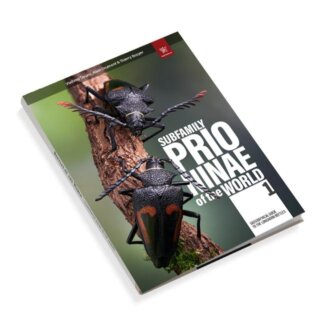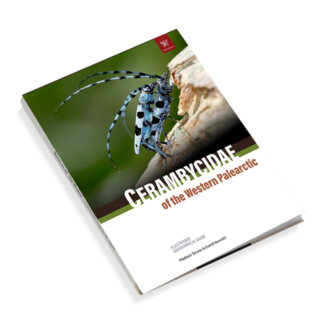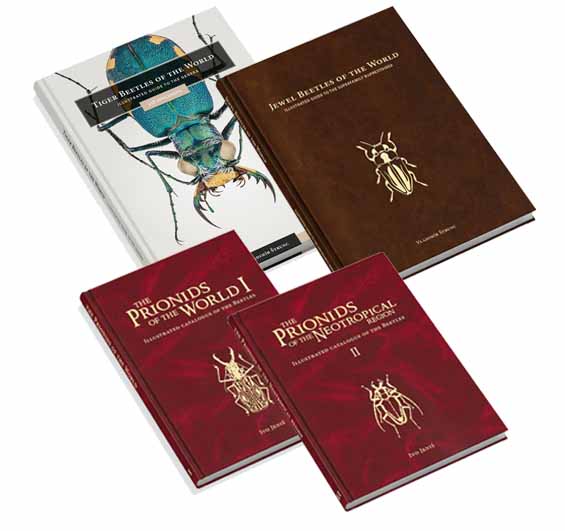Entomology is the scientific study of insects. As one of the largest branches of zoology, it covers a wide range of topics related to insect biology, behavior, ecology, and evolution. Insects are the most diverse group of animals on Earth, with millions of species, so entomology plays a crucial role in understanding ecosystems, human health, agriculture, and even forensic investigations.
Book novelties:
Prioninae of the World I.
Cerambycidae of the Western Paleartic I.
Entomology
Techniques for collecting insects
Try New modern shop – insect-books.store
upcoming topics: population ecology, entomology textbooks
Books about Beetles
Unique pictorial atlases for identifying Beetles:
(2020) Tiger Beetles of the World, Cicindelidae, Illustrated guide to the genera
(2023) Tiger Beetles of Africa, Cicindelidae, Geographical guide to the family Cicindelidae
(2024) Tiger Beetles of Orient, Cicindelidae, Geographical guide to the family Cicindelidae
(2022) Ground Beetles of Africa, Afrotropical Region
(2022) Jewel Beetles of the World, Buprestidae, Illustrated guide to the Superfamily Buprestoidea
(2008) The Prionids of the World, Prioninae, Illustrated catalogue of the Beetles
(2010) The Prionids of the Neotropical region, Prioninae, Illustrated catalogue of the Beetles
We recommend:
jeweled beetles, ground beetles, longhorn beetles, goliath beetle, stag beetle, carpet beetles
Some key areas of entomology include:
-
Insect Classification (Taxonomy): This involves identifying, naming, and classifying insects based on shared characteristics.
-
Insect Physiology: This focuses on the internal workings of insects, including their anatomy, digestive system, respiration, and reproduction.
-
Insect Ecology: Study of how insects interact with their environment, including other organisms (such as predators, prey, or symbiotic partners) and their role in ecosystems.
-
Insect Behavior: The study of how insects behave in terms of communication, mating, feeding, migration, and more.
-
Medical and Veterinary Entomology: This branch deals with insects that affect human health, such as mosquitoes (carriers of diseases like malaria) or lice, as well as their impact on animals.
-
Agricultural Entomology: Focuses on insects that affect crops, either as pests or as pollinators. This includes studying pest management and the use of beneficial insects in agriculture.
-
Forensic Entomology: The use of insect evidence to help solve criminal cases, often related to determining the time of death based on insect activity on a body.
-
Insect Conservation: Study and conservation of insect species that are endangered or have a significant ecological role.

Entomologists use various methods, including fieldwork, lab research, and even advanced technologies like DNA analysis, to deepen our understanding of insect biology. Have you ever come across a fascinating insect or something specific in entomology that caught your attention?




